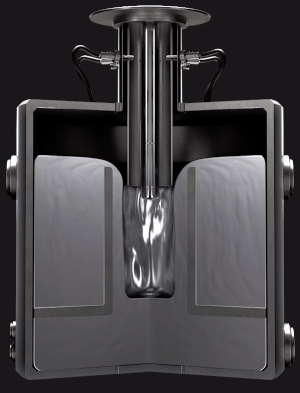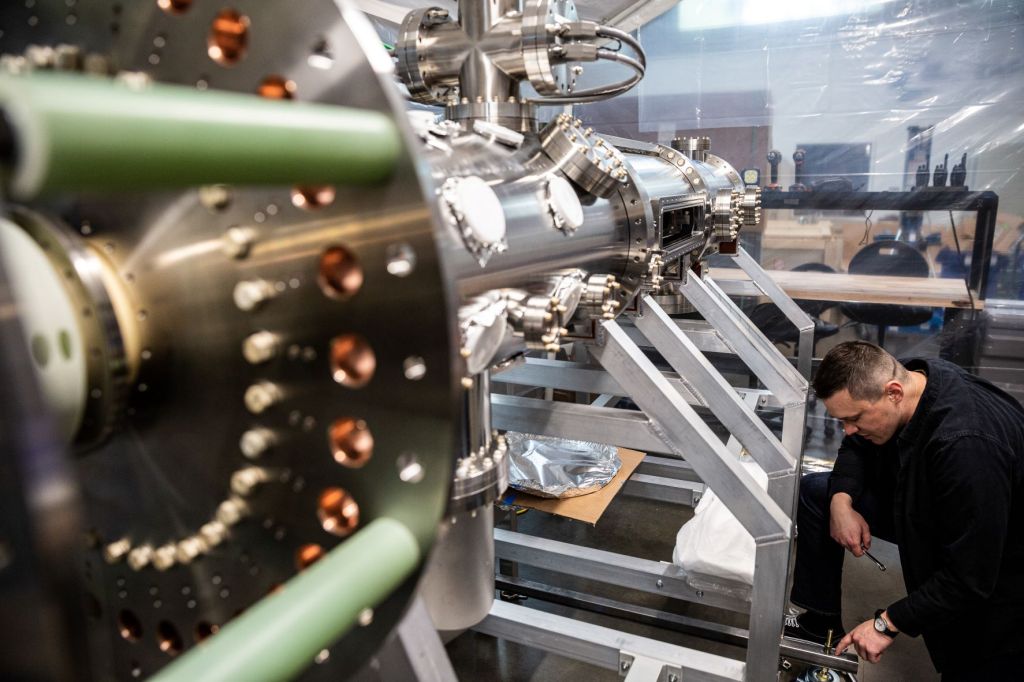Fusion startup Zap Energy has reached two milestones that could nudge it ahead in the race to offer low-cost, carbon-free energy — a $160 million Series C round and a successful test of a prototype fusion reactor that could pave the way to a commercial version.
Fusion power has become an unlikely investor favorite as carbon emissions continue to rise and the effects of climate change become more apparent. We have been trying to harness the power of the sun to produce energy for many years, but after tens of billions of dollars and decades of research, fusion remains just out of reach.
Still, clever new approaches to contain scorching hot plasma — which burns at more than 100 million degrees Celsius — have brought fusion power tantalizingly close to reality. Investors are flocking to the field, hopeful that advances wrought by continued research and increasingly sophisticated computer simulations will finally help fusion pull away from its long string of failures.
Zap Energy’s oversubscribed Series C was led by Lowercarbon Capital. New investors include Breakthrough Energy Ventures, Shell Ventures, DCVC and Valor Equity Partners. Existing investors Addition, Energy Impact Partners and Chevron Technology Ventures also contributed to the round. The startup’s core technology was spun out of research performed at the University of Washington and Lawrence Livermore National Laboratory.
Generally speaking, fusion power generates electricity by fusing hydrogen isotopes (either deuterium or tritium) into helium. The process releases neutrons, which are then captured to generate heat and spin a turbine. Atomic nuclei don’t like to fuse, so to coax them close enough for fusion to happen, nuclear scientists use extreme pressure and heat, creating a fourth state of matter known as plasma.
To create and contain the plasma, researchers generally take one of two approaches. In one, they compress hydrogen using powerful magnetic fields and then send an electric current through the resulting plasma to raise its temperature. In the other, they shoot a fuel pellet with a powerful laser, which both compresses and heats the hydrogen isotopes.

Zap Energy takes a third approach known as a sheared flow stabilized Z-pinch. In the Z-pinch, engineers send a plasma stream through a vacuum chamber and then electrify it. The electric current flowing through the plasma creates a magnetic field that contains it (a tidy bit of recursion that probably pleases physicists to no end). Each pulse releases neutrons, which in the final design, will be captured and converted to heat by a molten metal jacket that surrounds the reactor core.
The electrified plasma in Zap Energy’s reactor design is strikingly similar to what happens in a thunderstorm. Lightning bolts superheat the air around them, creating plasma, which is then pinched by the electricity flowing through it. Essentially, Zap Energy is using lightning in a bottle to trigger a fusion reaction.
Researchers have been able to fuse atoms on countless occasions using all three approaches, but the challenge for commercial fusion power has always been designing a reactor that produces more power than is used to run it.
Lasers, magnets and electric fields all require enormous amounts of power. For example, ITER, the massive experimental reactor being built in France, is expected to draw up to 620 MW at its peak — enough to power about 400,000 homes, if briefly.
By using the plasma to create its own magnetic confinement field, Zap’s engineers don’t have to build costly magnets or lasers, nor do they have to power them, reducing the amount of energy needed to reach breakeven.
Confining plasma, no matter how you go about it, is tricky business, though. Plasma is notoriously unstable under magnetic confinement and that instability is part of what has bedeviled attempts to achieve stable and net-positive fusion power. Early fusion experiments attempted to harness a variation of the Z-pinch but failed because the plasma grew unstable. Those failures drove researchers to largely favor magnetic or laser confinement.
But Zap Energy thinks it has solved the instabilities in the Z-pinch approach — its investors are clearly hoping that’s the case and that Z-pinch reactors will be both cheaper to build and faster to market. The company expects its reactor’s power production will reach the breakeven point within a year.
Fusion power has long been derided as always “just a few years away.” That’s still the case, but if Zap Energy can achieve breakeven and convincingly show that it can push past that, fusion proponents might finally prove their critics wrong.































Comment